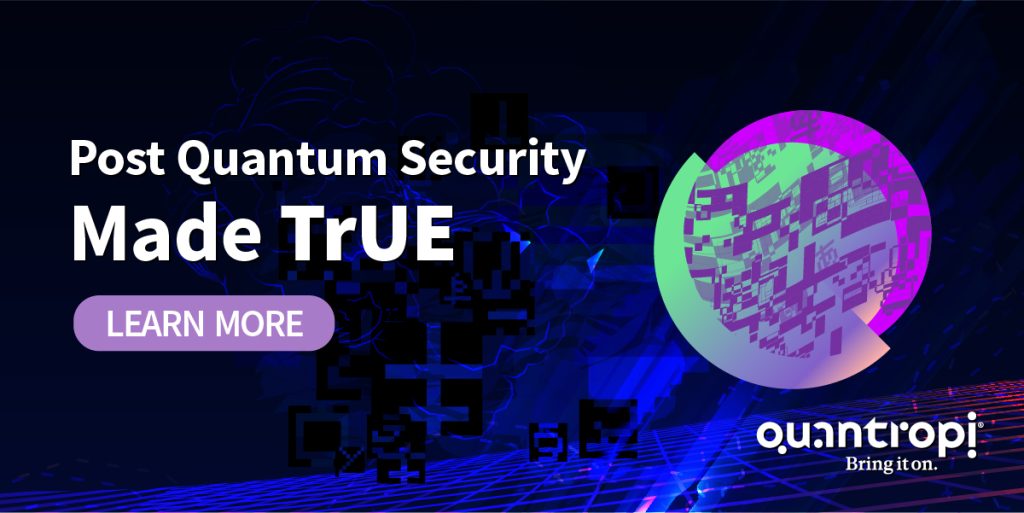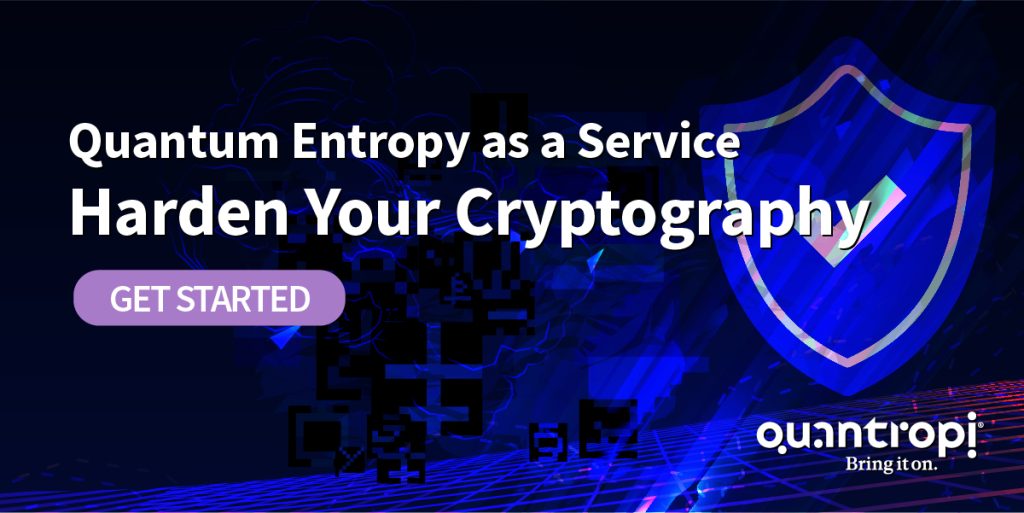How is quantum computing different than classical computing? What can a quantum computer achieve that a classical computer cannot? What risks do quantum computers pose to society and global business?
Below, we’ll dive into these questions and share some differences between classical computing and quantum computing.
Qbits
A quantum computer uses a quantum property called superposition or qubits to store data. Unlike a classical computer whose bits of data can exist as either a zero or a 1, a qubit can be a zero, 1, or both simultaneously. This capacity of qubits to exist in an indeterminate state enables them to perform several calculations simultaneously at speeds greater than the speeds practically achievable by classical computers.
This opens the door to solving many real-world problems that would take a classical computer hundreds – if not thousands – of years to solve. This is why experts believe that quantum computing will find dozens of applications in the future.
Soon, you can expect quantum security and quantum communications to be the norm. Quantum technology will power message encryption for more secure messaging, and quantum authentication will play an enabling role in data and information security.
Quantum Versus Classical Computing
In general, classical software development translates a programming language source code into platform-specific ‘machine code’ and operations (gates) performed on thousands of transistors. Similar to how classical gates manipulate bits, quantum gates manipulate qubits in quantum computing.
In classical computers, an algorithm usually requires lots of parallel computations which can be time-consuming. But quantum programming will take into account multiple options simultaneously and execute an algorithm on all options in a single step.
One key opportunity for advancing quantum computing is identifying methods to express quantum applications using high-level abstractions, then compiling and mapping these onto quantum simulators. A simulator can implement expected behaviours based on qubits and quantum gates to produce the same results that would be produced on a real quantum computer.
This process can be used to work on quantum algorithms and improve them to make them usable when quantum computers are finally available for real-world applications. However, it will be slower than a real quantum computer since the quantum effects that will give the latter its fast speeds will have to be simulated on this machine using classical software.
What is a Quantum Computer Like?
Quantum computers are nothing like traditional computers. They typically resemble a chandelier with an intricate system of wires and tubes. The peculiar design of quantum computers is intended to isolate the delicate qubits from electrical, magnetic, and thermal noise from outside. To achieve this, quantum computers are cooled to near absolute zero (-273.15 degrees Celsius or -459.67 degrees Fahrenheit) with the help of liquid helium.
The qubits in a quantum computer are arranged in a chessboard pattern on a superconducting chip. Qubits are tiny capacitors made of niobium – a metal that is as ductile as iron and as strong as titanium. The charges of the qubits oscillate, while the small antennae between them respond to detected microwaves.
What Can We Do With a Quantum Computer?
Quantum computers are best for processing tasks that involve huge amounts of data and computation. This is thanks to the performance advantage that quantum computers have over classical computers.
The tasks that a quantum computer can be useful for include:
Training of Machine Learning and Deep Learning Algorithms
Machine learning and deep learning models can take a very long time to train, especially if we’re talking about challenging tasks like speech recognition or computer vision. Even on data centers with hundreds of GPUs (graphics processing units), training a model can take weeks. With quantum computers, training times could be shrunk significantly, allowing us to do more in the same amount of time.
Computational Chemistry and Drug Development
Drugs and chemicals have traditionally been developed with trial and error, although recently, drug design has been accelerated with computers. But even with current tech, modeling interactions between chemical elements and their effects on humans is challenging for classical computers. Quantum computing could allow us to finally come up with cancer treatment and perhaps even help us develop drugs for new diseases in near real-time.
Financial Modeling
Businesses and investors can use specialized tools to assess the feasibility of their investment strategies. One of these tools is the Monte Carlo method. Monte Carlo models simulate a process hundreds or thousands of times to generate a range of possible outcomes for investors. Repeated simulation can take an enormous amount of time, meaning that financial modeling is another area where quantum computers can help.
Cybersecurity
Quantum computing is undoubtedly a serious cybersecurity threat, but it will bring good too. Technologies like quantum random number generators will allow us to make encryption algorithms more secure and less predictable.
Weather Forecasting
Weather forecasting relies on a wide range of variables like air temperature, humidity, or pressure. Taking into account all these variables is computationally intensive. Not only that, but weather forecasting on a larger scale – for example, at a global level – is extremely challenging for classical computers. Not only can quantum computers help us forecast weather more accurately, but they can also help us predict weather changes in the entire world, which could be extremely useful for tackling climate change.
From a technical standpoint, a quantum computer would perform just about any task that we’re currently doing on classical computers. However, considering how challenging it is to keep quantum computers stable and error-free, using a quantum computer for web browsing or other similarly light tasks would be expensive and inefficient.
Quantum computers most likely won’t replace traditional computers in the near future. Once sufficiently large-scale quantum computers are developed, we could use them to solve high-volume computational problems. Traditional computers, in the meantime, would remain to perform more mundane tasks.
10 Differences Between Classical Computing and Quantum Computing
The 10 primary differences between quantum and classical computers are as follows:
1. Quantum Computers are Governed by Quantum Mechanics
Quantum computers rely on quantum mechanics, a branch of physics that operates at the level of atoms. In contrast, traditional computers operate in accordance with the laws of classical physics.
2. Quantum Computers Store Information in Qubits
Classical computers rely on bits to perform operations. Bits can have a value of either 0 or 1. Qubits, in contrast, can represent a combination of the classical 0 or 1, which is what makes quantum computers so fast.
3. Quantum Computing Operations Rely on Linear Algebra
Bits operate according to Boolean algebra because they can produce either 0 or 1. Quantum computing, in contrast, uses linear algebra and matrices to define operations and qubit states.
4. The Power of Quantum Computers Increases Exponentially With Qubits
Because qubits can simultaneously store both 0 and 1, the power of quantum computers scales exponentially as we add qubits. In contrast, classical computers scale linearly with the number of transistors.
5. Programs in Quantum Computing are Probabilistic
In quantum programs, each possible output has an associated probability. Classical programs deterministically produce either 0 or 1.
6. Quantum Computing Operations Must be Reversible
Quantum circuits must be reversible, essentially meaning that we must be able to recover the input state of an operation from its output. Most classical circuits aren’t reversible, although they can be.
7. Quantum Computers Have Data Restrictions
According to the no-cloning theorem, it’s impossible to create a copy of an arbitrary unknown quantum state. This severely limits the ability of quantum computers to copy data, which is an issue that doesn’t exist on classical computers.
8. Quantum Computers are Better at Data-Heavy Tasks
Quantum computers are unlikely to fully replace classical computers any time soon. Quantum computers require a lot of maintenance and are costly, making them unreasonable for tasks that classical computers can do much more efficiently. At least initially, quantum computing will be reserved for very demanding applications, such as AI or drug development.
9. Quantum Computers Can’t Operate at Room Temperature
Quantum computers need to be kept near absolute zero to operate reliably – otherwise, qubits break down and lose information. This is one of the main factors that make quantum computers difficult to operate.
10. Quantum Computers Aren’t Easily Scalable
We can scale classical computing technology basically at will. Thanks to this scalability, virtually infinitely scalable compute resources are now available to anyone through cloud platforms. Quantum computers aren’t yet easily scalable – qubits are extremely sensitive to environmental conditions, which considerably complicates scaling.
Quantum Computing and the Quantum Threat
Currently, the expertise and costs of building quantum computers combined with the slow pace of quantum algorithm and hardware development are huge hurdles to this technology’s commercial availability. However, these problems can be overcome.
For example, quantum-accelerated computing as a cloud service could be a promising approach for large-scale commercialization. Furthermore, the quantum systems of tomorrow will be hybrids of classical and quantum units, with a typical application containing both classical and quantum code.
In the near future, one of the fields that will be completely disrupted by quantum computing is cryptography. Current cryptographic systems are fairly safe because their underlying mathematical algorithms cannot be broken by classical computers in a reasonable timeframe. But once sufficiently powerful quantum computers are developed, this safety will become an illusion.
Cryptography is worrying because business models, IT infrastructure, and software systems that rely on these algorithms rarely get re-factored quickly, so making them quantum-safe will take several years. Efforts are underway to find ‘post-quantum’ public-key cryptosystems that will resist future quantum attacks.
Quantropi – The Future of Quantum-Grade Data Encryption
‘Steal now and crack later’ is real. Bad actors are harvesting encrypted data today to decrypt later with quantum computers. And in the not-too-distant future, these same quantum computers will break existing cryptographic defenses.
Enter Quantropi. Quantropi offers the only end-to-end platform with all three prerequisites for cryptographic integrity: Trust, Uncertainty, and Entropy (TrUE).
QiSpace™ FREE Quantum-Security Trial
These “TrUE” technologies establish Trust between any two parties via quantum-secure asymmetric MASQ™ encryption, provide Uncertainty to attackers, rendering data uninterpretable forever, with QEEP™ symmetric encryption, and Entropy as a Service (EaaS) with SEQUR™— ultra-random key generation & distribution that enable secure data communications. All TrUE technologies are accessible via the flagship QiSpace™ platform.
Contact us to learn more about Quantropi’s suite of capabilities – designed for today’s threats and tomorrow’s quantum attacks.



